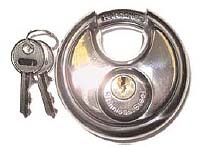-
1 difficult to incorporate
Парфюмерия: трудный для введения в составУниверсальный англо-русский словарь > difficult to incorporate
-
2 difficult to incorporate
English-Russian perfumery & beauty care dictionary > difficult to incorporate
-
3 incorporate
1. a редк. бесплотный, бестелесный2. v включить3. v соединять, объединять4. v соединяться, объединяться5. v принимать, включать в число членов; вводить в состав; инкорпорировать6. v зарегистрировать как корпорацию, оформить в качестве юридического лица7. v соединять; смешивать8. v соединяться; смешиваться9. v воплотить10. v тех. встраиватьСинонимический ряд:1. absorb (verb) absorb; assimilate; imbibe; inhaust; insorb2. form a legal corporation (verb) charter; form a company; form a legal corporation; organise; organize; register a business; start a business3. merge (verb) affiliate; agglomerate; bring together; build in; combine; comprise; consolidate; embody; exemplify; fuse together; include; integrate; merge; uniteАнтонимический ряд: -
4 difficult
1. a трудный; тяжёлыйdifficult of access — неприступный; труднодоступный
2. a тяжёлый, затруднительный; неприятный3. a трудный, упрямый; неуживчивыйСинонимический ряд:1. complex (adj.) abstract; abstruse; complex; enigmatic; intricate; involved; mysterious; obscure; perplexing; profound; puzzling2. fastidious (adj.) fastidious; particular3. froward (adj.) froward; obstinate; stubborn; unruly4. hard (adj.) arduous; backbreaking; burdensome; demanding; difficile; effortful; exacting; exhausting; formidable; hard; knotty; labored; laborious; onerous; operose; oppressive; rigorous; rough; rugged; serious; severe; slavish; sticky; strenuous; taxing; terrible; toilful; toilsome; tough; trying; uphill; weighty5. impossible (adj.) balky; contrary; impossible; ornery; wayward6. perverse (adj.) boorish; impolite; perverse7. tedious (adj.) tedious; wearisome8. troublesome (adj.) austere; disadvantageous; discomforting; forbidding; heavy; incompatible; inconvenient; painful; reserved; rigid; troublesome; uncomfortableАнтонимический ряд:amenable; calm; careless; categorical; clear; complacent; easy; facile; favourable; free; light; lucid; manageable; plain; pleasant; simple -
5 work
[wɜːk] 1. сущ.1) работа; труд; занятие; делоexhausting / tiring work — утомительный труд
shoddy / slipshod / sloppy work — недобросовестный труд, плохо выполненная работа, халтура
to be at work upon smth. — быть занятым чем-л.
to begin work — начать работу, приступить к работе
to set / get to work — приняться за дело
to set smb. to work — дать кому-л. работу, засадить кого-л. за работу
to quit / stop work — окончить, завершить работу
They quit work at one o'clock. — Они заканчивают работу в час дня.
- hard workThey never do any work. — Они всегда бездельничают.
- paper work
- physical work
- social work
- undercover workSyn:2) место работы; занятие; должностьat work — на работе, за работой
out of work — без работы, безработный
to go to work — пойти на работу, начать работать
They are still at work. — Они всё ещё на работе.
Many people travel to work by car. — Многие едут на работу на машине.
Syn:job II 1.3) действие, поступокdirty work — грязный, низкий поступок
4)а) результат труда, изделие, продуктdelicate / meticulous / precise work — тонкая, изящная работа
It can help to have an impartial third party look over your work. — Будет полезно, если бы Вашу работу осмотрел кто-нибудь незаинтересованный.
That's a beautiful piece of work. — Это прекрасная работа.
б) продукт, эффект, результат (от работы какого-л. механизма, структуры)в) произведение, работа, сочинение, (письменный) труд (научного, политического или художественного характера)to exhibit / hang smb.'s works — выставлять чьи-л. полотна (в картинной галерее, в выставочном зале)
In my opinion, this is Rembrandt's greatest work. — Я думаю, это самое значительное произведение Рембрандта.
- published worksUnder his arm, there was a book which looked like the complete works of Shakespeare. — Он нёс под мышкой том размером с полное собрание сочинений Шекспира.
- selected works5) ( works) преим. брит.; употр. с гл. в ед. предприятие, завод, фабрикаSyn:6)а) воен. фортификационные сооружения, укрепления, оборонительные сооруженияб) ( works) инженерно-технические сооружения7) ( works) механизм (работающие или движущиеся части какого-л. механизма)8) мастерство, умение, искусство выполнения, обработкаSyn:9) вышивание, рукоделие, шитьёSyn:10) брожение, ферментацияSyn:11) физ. работа•Gram:[ref dict="LingvoGrammar (En-Ru)"]work[/ref]••to have one's work cut out (for one) — иметь трудную задачу, трудное дело
2. прил.to make short work — быстро разобраться, расправиться с чем-л.
1) рабочий, используемый для работы3. гл.; прош. вр., прич. прош. вр. worked, уст. wroughtwork clothes — рабочая одежда; спецодежда
1) работать, заниматьсяto work hard / strenuously — работать усердно, усиленно
to work like a horse / dog / beaver / navvy / nigger / slave — работать как лошадь, как негр (на плантации)
to work one's tail off, to work double tides — работать не покладая рук, работать день и ночь
They were working on a new book. — Они работали над новой книгой.
Tasso had been working at his epic poem. — Тассо работал над своей эпической поэмой.
You have to work at being friendlier with people. — Тебе нужно учиться быть дружелюбнее в общении с людьми
2) работать, служить; быть занятым (каким-л.) постоянным деломShe works for a large firm. — Она работает в большой фирме.
to work side by side with smb. — тесно сотрудничать с кем-л.
I worked to a man called Duncan. — Я работал на человека по имени Дункан.
They work for a farmer. — Они работают у фермера.
3)He worked them nearly to death. — Он заставлял их работать до полного изнеможения.
Richard said that he would work his fingers to the bone for Ada. — Ричард сказал, что ради Ады он будет работать не покладая рук.
б) эксплуатировать, использовать (чей-л. труд, функциональность какого-л. аппарата)Syn:exploit II4) функционировать, действовать; быть эффективнымHis plan didn't work. — Его план не сработал.
The pump will not work. — Насос не работает.
Syn:5) приводить в действие (что-л.); управлять, осуществлять управление (чем-л.)This computer is worked from a central server. — Управление этим компьютером осуществляется с центрального сервера.
Syn:6) приводить, доводить (до какого-л. состояния); приводить себя в какое-л. состояниеShe worked herself into a rage. — Она пришла в ярость.
It would take some time for the trade to work itself right. — Потребуется определённое время, чтобы торговля стала успешной.
7) быть в постоянном движении; быть в состоянии волнения; метаться, кипеть, бурлитьHis face worked with emotion. — Его лицо подёргивалось от волнения.
While thoughts like these were working in the minds of many Dissenters. — В то время как подобные мысли метались в головах многих диссентеров.
Syn:8)а) воздействовать, влиять, убеждать, склонять (особенно тонкими, хитрыми способами); приводить в (какое-л.) настроениеI have been working him even now to abandon her. — Я продолжал даже теперь убеждать его оставить её.
Syn:б) = work up волновать, возбуждать; провоцировать, подстрекатьSyn:10) амер. обманывать, вымогать, добиваться (чего-л.) обманным путёмSyn:11) прош. вр., прич. прош. вр. worked, wroughtа) обрабатывать, возделывать (землю, почву); культивировать, выращивать (какое-л. растение)Syn:б) разрабатывать (жилу, карьер, каменоломню и т. п.)в) взбивать, месить, мешать (тесто, масло и т. п.)Syn:г) выделывать, вытёсывать, выковывать, придавать определённую форму (камню, металлу или другому твёрдому веществу)The wood is easily worked. — Дерево легко поддаётся обработке.
12) = work off, = work out оплачивать трудом, отрабатыватьOne of the greatest bores in packing is choosing which shoes to take. They are heavy and do not really work their passage. — Самое трудное при упаковке вещей - это выбор обуви. Обувь тяжёлая и не оправдывает затраченных на её транспортировку усилий.
13)а) прош. вр., прич. прош. вр. worked, wrought осуществлять, выполнять, вызыватьThe beer had wrought no bad effect upon his appetite. (Ch. Dickens) — Пиво не перебило ему аппетит.
the destruction wrought by the sea — разрушения, произведённые волнами
Syn:б) разг. организовывать, устраиватьIf you can possibly work it meet me somewhere tomorrow. — Если тебе удастся это устроить, то давай где-нибудь завтра встретимся.
Uncle Fred, did you work this? — Дядя Фред, это ты устроил?
He can work it so that you can take your vacation. — Он может устроить всё так, что ты сможешь взять отпуск.
Syn:14) шить, вышивать, вязать, заниматься рукоделиемSyn:15) уст.; прош. вр., прич. прош. вр. worked, wroughtа) делать (нечто плохое, губительное); совершать (грех, преступление и т. п.)б) соблюдать, осуществлять (обряды, ритуалы и т. п.)the 26th degree known as Prince of Mercy (not worked in England) — 26-ая ступень, известная как Принц Милосердия (не соблюдаемая в Англии)
16) прош. вр., прич. прош. вр. worked, wrought делать, выполнять, совершать (деяние, ряд действий, работу, задачу и т. п.)to work wonders — делать, демонстрировать чудеса
The special work which he undertook, and the rich ability with which he wrought it. — Особая работа, за которую он взялся и с которой он замечательно справился.
17)а) бродить ( о напитках)•Syn:18)а) производить, изготовлятьThe flint instruments of oval shape have been mostly worked by gentle blows. — Кремневые инструменты овальной формы в основном обрабатывались лёгкими ударами.
б) уст. создавать ( о Боге)в) уст. строить (дома, церкви, мосты и т. п.)forty-six noble columns, some wrought in granite and some in marble — сорок шесть величественных колонн, часть из них построена из гранита, часть - из мрамора
19) разг. передвигаться, перемещаться, выполняя обязанности, работу, какие-л. действия (о разносчиках, агентах, нищих, ворах и т. п.)a professional beggar who "works" seventy or eighty streets in a few hours — профессиональный нищий, который "отрабатывает" семьдесят или восемьдесят улиц за несколько часов
The night being comparatively young, Billy decided to work the trams. — Так как ночь только начиналась, Билли решил заняться трамваями.
He had been a fur thief working the big department stores. — Он был вором по мехам и работал в больших универмагах.
20) исследовать, систематически изучатьThere are very many forms and when worked they will doubtless yield interesting results. — Существует много форм, и если их систематически изучать, то они раскроют много интересного.
21) двигать, передвигатьIn vain I shifted my aching legs and worked my benumbed hands. — Напрасно я двигал ногами, которые очень болели, и разминал окоченевшие руки.
A neighbouring battery of guns were being worked into position. — Соседняя артиллерийская батарея выдвигалась на позицию.
22) идти, складыватьсяOur family life does not work any more. — Наша семейная жизнь разладилась.
It won't work. — Этот номер не пройдёт.
23) пробираться, продвигаться; перемещатьсяThe women worked themselves into the centre of the crowd. — Женщины протиснулись в центр толпы.
Mrs. Trafford worked her way round to Major Lovelace. — Миссис Трэффорд прокладывала себе путь к майору Лавлейсу.
He gradually wrought his way against the usual obstacles which a poor artist must always encounter. — Постепенно он преодолевал препятствия, которые всегда возникают на пути бедного артиста.
The dog worked round and round him, as if undecided at what particular point to go in for the assault. — Собака медленно кружила вокруг него, как будто в нерешительности, в какое конкретно место вцепиться.
A new conversation starts up every hour, and debateable points acquire a fresh interest because there is never time to work to a conclusion. — Каждый час возникает новый разговор, и дискуссионные темы вызывают новый интерес, так как никогда не хватает времени дойти до какого-либо решения.
24) производить, делать с помощью длительного применения какой-л. силыHe works holes in the seat of his trousers. — Он протирает себе дырки на штанах.
25)а) вставлять, всовывать; включатьShe worked a few jokes into her speech. — Она вставила несколько шуток в свою речь.
Syn:26) = work out вычислять, решать (пример и т. п.)The sum comes to the same figures, worked either way. — Сумма оказывается одной и той же, как бы её ни вычисляли.
•- work in- work off
- work out
- work over
- work up••to work one's will upon smb. — заставлять кого-л. делать по-своему
-
6 compound
1. n физ. хим. соединение; смесь; состав2. n лингв. сложное слово3. n тех. компаунд-машина4. a спец. составной, сложный5. v смешивать, составлять; соединять6. v юр. приходить к компромиссному соглашению; выкупать; погашать повременные платежиthey finally compounded their differences and shook hands — они в конце концов уладили свои разногласия и обменялись рукопожатием
7. v юр. отказываться от возбуждения иска, жалобы8. v юр. начислять или рассчитывать сложные проценты9. v юр. осложнять; усугублять10. n огороженная территория вокруг фабрики или жилья европейца11. n огороженные бараки для рабочих алмазных приисков12. n воен. временный лагерь для военнопленныхСинонимический ряд:1. composite (adj.) combined; complex; complicated; composite; difficult; intricate; involved; mixed; multifarious; multiple; varied2. common (noun) common; court; grounds3. mixture (noun) admixture; aggregate; alloy; amalgam; amalgamation; blend; combination; commixture; composite; compost; fusion; immixture; interfusion; intermixture; mix; mixture; mix-up; preparation; solution; suspension; synthesis4. increase (verb) aggrandize; augment; beef up; boost; build; complicate; confound; enlarge; exacerbate; expand; extend; heighten; increase; intensify; magnify; make complex; make intricate; manifold; multiply; plus; push5. join (verb) associate; bond; bracket; coadunate; coagment; coalesce; combine; concrete; confuse; conjoin; conjugate; connect; couple; incorporate; join; link; marry; one; relate; synthesize; unite; wed; yoke6. mix (verb) admix; amalgamate; blend; comingle; commingle; commix; fuse; immingle; immix; interblend; interflow; interfuse; intermingle; intermix; make up; meld; merge; mingle; mix; stirАнтонимический ряд:element; minimize; separate; simple -
7 padlock
навесной замок
-Параллельные тексты EN-RU
...be provided with a means permitting it to be locked in the OFF (isolated) position (for example by padlocks).
[IEC 60204-1-2006]... иметь средства для запирания в положении ОТКЛЮЧЕНО (отделено), например, с помощью навесных замков.
[Перевод Интент]
Источник: insight-security.com
In simple terms, a padlock has three major components; the Body, the Shackle and the Locking Mechanism, …it may also incorporate features such as a weatherproof casing, anti drill or anti cropping protection, etc.
Discus style padlocks - have no angular corners, so are often used with cycle security chains and cables, as well as being a popular choice for securing doors on sheds and beach huts, etc. When used as a door lock, they will typically be used in conjunction with the special shrouded discus hasp and staple set, which offers extra protection to the padlock shackle.

Shutter Locks / Anvil Locks - are typically used to secure the external (or internal) security roller shutters fitted to shop fronts. They are also popular for use with parking posts, motorcycle security chains, etc.

Conventional Style padlocks have a wide range of applications from low security applications like locking your toolbox, to high security uses such as securing factory gates or protecting motorcycles. They are typically available as; Open, Close, or Semi Enclosed Shackle types

Shackleless type padlock (shown with special hasp)Shackleless Padlocks - this is a bit of a misnomer as the padlock does of course have a shackle, it’s just that it’s on the underside of the lock body and therefore unseen. This type of padlock can be round (like the one pictured) or rectangular, but typically, they are designed to be used with a special matching security hasp. Because of their design, these units are difficult to attack and over recent years, as well as being used on warehouse doors, etc, they have also become very popular for use on vans and other vehicles where they are used to secure opening double doors.

A "Close Shackle" padlock is one with built in shoulders, which are designed to minimise the amount of the shackle exposed, to a saw or bolt cropper attack. This type of padlock will normally have a higher security rating than an equivalent unit with a semi enclosed or open shackle, however subject to size and clearances, may not be practical for instance, to use where you need to secure 2 chain links together or require a padlock for use with a shrouded hasp, etc. To make them easier to use, many Close Shackle padlocks feature "removable shackles" which are fully released from the body of the padlock when it's unlocked.
An "Open Shackle" padlock will typically be easier to use where the shackle needs to pass through 2 chain-links (i.e, a chain securing two opening gates together), etc. As more of the shackle is exposed however, this makes it potentially easier to attack with a saw or bolt croppers.
A "Semi Enclosed Shackle" padlock is something of a compromise, but will often offer more flexibility in use than a Close Shackle padlock and improved security over an Open Shackle model.
Тематики
EN
Англо-русский словарь нормативно-технической терминологии > padlock
См. также в других словарях:
incorporate — 01. Our new marketing strategy will [incorporate] both Internet and e mail advertising. 02. Both of the major political parties in the state are working to [incorporate] some key environmental policies into their platform. 03. One of the most… … Grammatical examples in English
architecture — /ahr ki tek cheuhr/, n. 1. the profession of designing buildings, open areas, communities, and other artificial constructions and environments, usually with some regard to aesthetic effect. Architecture often includes design or selection of… … Universalium
Christianity — /kris chee an i tee/, n., pl. Christianities. 1. the Christian religion, including the Catholic, Protestant, and Eastern Orthodox churches. 2. Christian beliefs or practices; Christian quality or character: Christianity mixed with pagan elements; … Universalium
command theory — or imperative theory (associated with Jeremy Bentham and John Austin) is based on the notion of commands issued by a sovereign. Bentham did not insist that the sovereign power be single, indivisible and answerable to no one. The habit of… … Law dictionary
imperative theory — command theory or imperative theory (associated with Jeremy Bentham and John Austin) is based on the notion of commands issued by a sovereign. Bentham did not insist that the sovereign power be single, indivisible and answerable to no one. The… … Law dictionary
Exploration of Mercury — The exploration of Mercury has taken only a minor role in the space interests of the world. It is the least explored inner planet.JHU/APL (2006). [http://messenger.jhuapl.edu/ MESSENGER: MErcury Surface, Space ENvironment, GEochemistry, and… … Wikipedia
Tanzanian hip hop — The widest form of Tanzanian Hip hop music is known as Bongo Flava. Bongo Flava encompasses a large variety of different sounds, but it is particularly known for heavy synth riffs and an incorporation of Tanzanian pop. There is some debate over… … Wikipedia
mechanics — /meuh kan iks/, n. 1. (used with a sing. v.) the branch of physics that deals with the action of forces on bodies and with motion, comprised of kinetics, statics, and kinematics. 2. (used with a sing. v.) the theoretical and practical application … Universalium
Doubly special relativity — (DSR) also called deformed special relativity or, by some, extra special relativity is a modified theory of special relativity in which there is not only an observer independent maximum velocity (the speed of light), but an observer independent… … Wikipedia
Riboflavin — Riboflavin … Wikipedia
Law & Order — Title card Format Police procedural Legal drama … Wikipedia
